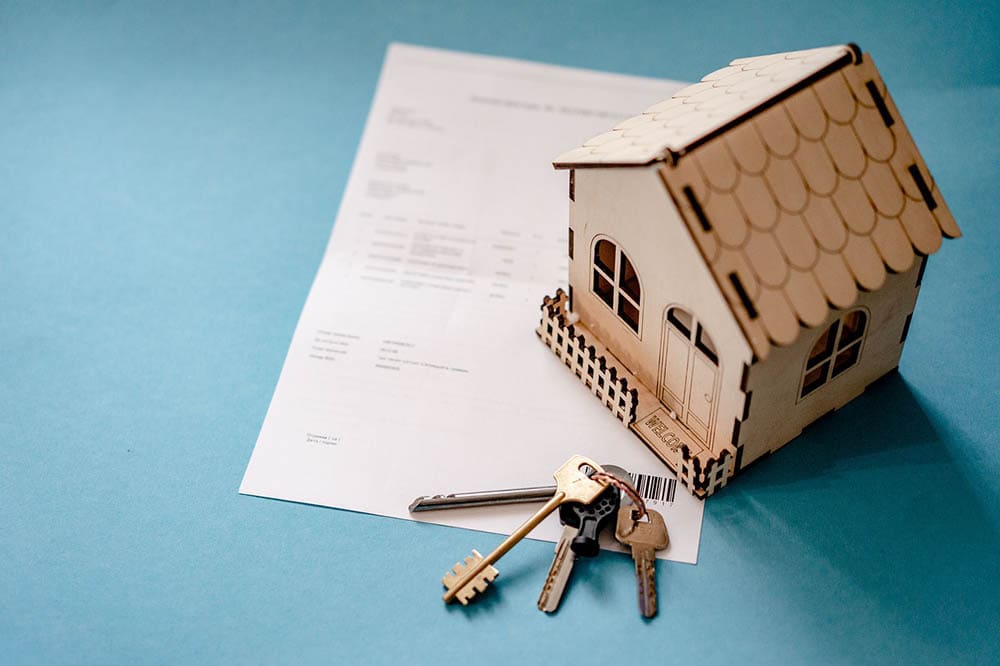13 Home Buying Myths and Misconceptions
-
- Last updated:

Sooner or later, most people want to advance from renting to owning a home. This can be quite an exceptional step to take and requires some research to get it right. But as you delve deeper into the property market, you’ll come across some myths and misconceptions.
As a potential homeowner, you must be able to differentiate myths from facts. In this article, we get to address these myths and misconceptions, and by debunking each of them, you can arm yourself with the correct information.
So, stick around, and let’s learn what’s right and what is wrong as you work on buying a new home.

The Top 13 Home Buying Myths and Misconceptions
1. A Buyer Must Make a 20% Down Payment
Buying a house is a dream for many people, especially those that want to start a family. But, this isn’t a cheap endeavor. You must have savings in place for the house’s down payment. Many people believe that they need to make a 20% down payment.
Saving such a huge amount takes time and can be quite hard for most folks. But, before you lose hope of owning your own place, it’s best to find out the truth. Yes, you do need to make a down payment for the new house.
However, the amount you need isn’t 20%, but only 12%. While this is only an average amount, it’s even possible to make a 5% down payment for a new house. Note that such a low amount can mean you have to pay a higher monthly mortgage payment. This is why people opt to make the 20% and above down payment.

2. You Can’t Buy a Home If You Have Student Debt
Many millennials find themselves in a predicament where they have high student debt. Many believe the misconception that this automatically disqualifies them from buying a home. The reason being it would be harder to access a good mortgage.
Truthfully, many young people have more financial obligations. This is why many are opting not to buy homes until later. Compared to previous generations, it’s tougher for young people to save for the down payment and buy homes.
But having student debt doesn’t hinder one from accessing a loan for a house. New guidelines are in place that makes it easier for any person with a student loan to qualify for a mortgage. Thanks to the change in underwriting rules by Fannie Mae, it’s even easier to qualify for a mortgage when you have student debt.
If, for example, another party is paying your student debt, it’s easy to exempt it from your DTI (Debt-to-Income) ratio. That way, your student debt improves your DTI and qualifies you for a better mortgage with lower interest rates.
It might seem like a crazy idea to add debt on top of more debt. But you have to see it from the house’s point of view as an asset. A home can build equity over time, and when you sell it, you use the additional money to clear all your debt.
3. It’s Better to Go for a 30-year Mortgage Plan
Mortgages are one of the best ways to buy a home if you don’t have the full amount. Lenders offer different mortgage plans ranging from 5 to 30 years. One popular myth home buyers face is that the 30-year mortgage plan is the best choice.
It means the longer the mortgage, the cheaper it is. But this may not be the case. Well, the 30-year mortgage plan does have its pros. You get to pay lower monthly rates that won’t burden your budget. But when you do the math, you realize you end up paying much more to the lender than intended.
A 30-year plan is good, but it’s not the best. If you can work with another plan and end up paying less, it’s better to go for that.

4. You Can Only Qualify for a Mortgage with a 650 and Above Credit Score
Have you ever heard that you can’t get a mortgage with a credit score lower than 650? That’s a myth. Many people who want to buy a new home tend to shy away because of this false statement. It even gets worse when those with higher scores believe they still don’t qualify.
There is some truth to this statement, but not in the way many people perceive it. It’s better to have a good credit score when you want to qualify for better mortgage rates. But when you have a lower credit score, you can still qualify to get a mortgage and buy a house.
All you need to do is shop around and get to learn the terms and conditions set by lenders. They all have varying requirements, and some accept credit scores as low as 620. Heck, even with a lower credit score, you still qualify for other options.
A good example is getting an FHA loan that requires a minimum credit score of 500. Just keep in mind they might need you to put down a larger down payment. In addition, you can end up with a high-interest rate. But you can still manage to fulfill that dream of becoming a homeowner.
5. Home Inspections Aren’t Necessary
Buying a house can be an eye-opening experience. You start out thinking you’re the only one interested in a specific house, but then reality sets in. Many other people are interested in the same property, which sets off a bidding war.
Some people believe it’s better to waive a house inspection during a bidding war. This gives them a better chance of landing the property they’ve been eyeing. But that can hugely work against you.
Home inspections should never be waived, even during a bidding war. While many lenders insist on home inspections, others leave it up to the homeowner. In such instances, it’s better to lose out on the house than waive the home inspection.
The best house to buy is one with minimal to no problems. The best way to identify if the house meets the criteria or not is to carry out a thorough inspection. Once all the problems are out in the light, you can negotiate for repairs. If this won’t happen, it’s best to walk away from the property rather than incur the extra cost of fixing the issues.

6. Avoid Buying a House in a Seller’s Market
There are two markets worth noting in real estate: a buyer’s and a seller’s market. The buyer’s market is when there are more homes for sale than willing buyers. On the other hand, a seller’s market has more buyers than homes for sale.
A seller’s market can be difficult for willing buyers. While they can buy homes, there are only a few for sale at that specific time. This can lead to buying frenzies and bidding wars. The most popular advice is to pull out of the search and wait for the buyer’s market during such times.
While this can be a strategy, if you want a house during a seller’s market, it’s best to go for it. Remember, no one knows what tomorrow will bring, so it’s better to buy a house today if that is what you want. During a seller’s market, the best thing to do is be open-minded and don’t give up.
Even if you lose out on house after house, keep searching. The competition can be stiff in a seller’s market, but there are also quality homes in the market. Keep searching and putting in offers. You might land on a gem that you never believed you could find. Increase your chances of emerging as a winner by getting a preapproved mortgage plan from a lender before you hit the streets.
7. All Lenders Give the Same Deal
You can pay the full amount if you have enough savings when you want to buy a house. But for many people, this isn’t possible, so they opt for a mortgage. Basically, a lender will loan you the amount you need to buy the house and charge you interest.
As a potential homeowner, a myth you must never believe is all lenders offer the same deal. That means they all offer the same mortgage rate, so there’s no need to shop around. While your favorite bank might have some good mortgage plans, it’s always better to visit others.
Research is crucial when you want to find the best deal. All lenders have different deals meaning you might just land on the best. Lenders offer different deals because people qualify for different rates. While one person can qualify for a 5% mortgage rate, another can qualify for a 6.25%. This is based on their differing credit scores.
Lenders have to keep in mind the risk of lending you the money. Those with better credit scores have less risk compared to those with lower scores. The lender will use a risk-based pricing model to determine the best interest rate for you.

8. Winter is the Worst Time to Buy a House
Imagine you finally put together the right amount you need for a down payment for your new home. But by this time, the seasons have changed, and it’s winter. A common myth is that you should never buy a house during winter. It’s better to wait for spring or summer when the weather is much nicer.
Frankly, this isn’t true. While it might be better to house-hunt in spring and summer, winter is the best time to buy it because there are higher chances of getting a deal. Remember, many people aren’t buying during this time; you can negotiate a better price.
Winter is hard for sellers, and many simply want to offload the property and move on. They can offer you a deal and not even wait to see if any more bids can come in. Apart from a good deal, you can see how the house holds up when the weather is rough.
A new home can reveal lots of secrets during bad weather. This is even a better time to conduct a home inspection since some problems are more prominent in winter. If these issues prove to be too much, you can skip the purchase and find a better house to buy.
9. You Can’t Buy a House Without a Realtor
Real estate agents play a huge role when you want to buy a house. It’s not uncommon to hear that you have to have a realtor to buy a house. However, this is a misconception that many buyers face—especially those doing so for the first time.
The truth is you don’t need to have a realtor to buy a house. In fact, you can do all the work and avoid paying the realtor fees. Only just be ready to do a lot of work on your own. Plus, this might take you longer to buy that home that you want.
The work of a realtor is to find a home that matches your budget and needs. They can cover a wider area and narrow down the number of houses you have to look at. But, if you have the time, you can do the same and even use the internet to narrow down your search.
This way, you can see different places. It’s best to learn all you can about an area before you decide to buy a house there. While a realtor can make this easier for you, it’s something you can do too.

10. A Preapproved Loan Isn’t Important
When you want to buy a house, it can be quite tempting to go out and start house hunting even before you finalize the financing. The myth is you don’t need a preapproved loan to do so as you can go find a house and then come later to apply for a loan.
While this is something that you can do, it’s not the best idea. Imagine you find the best house in the perfect neighborhood. You love everything about it, but you don’t have a preapproved loan to get it taken off the market. By the time you get the loan to be approved, someone else already beat you to the punch.
As a potential home buyer, it’s smarter to get a preapproved mortgage from your lender. This not only gives you negotiating power, but you can participate confidently in bids. Plus, you won’t feel the pressure to settle on an offer that one lender gives you. There’s ample time to shop for better mortgage deals before you start hunting for a house.
11. Buy a House Worth the Maximum Mortgage You Qualify For
Any person with a good credit score has the potential to qualify for a high mortgage. When you shop around, you can get the perfect preapproved mortgage that gives you a chance to buy a lovely home. Many people believe they should then go for a house that’s worth their maximum mortgage.
While it’s possible to qualify for a high mortgage, having a budget in mind is crucial. Remember, the higher the amount you borrow, the higher your monthly payments. Your monthly income shouldn’t all go towards paying the mortgage.
In fact, the rule of thumb is less than a third of your income should go towards mortgage repayment. Life isn’t predictable, and the future can come with certain complications. When you tie a huge amount to mortgage payments, you can find it hard to cope financially.

- Related Read: How Many Homeowners Are Behind on Their Mortgage?
12. Go for the Loan with the Lowest Interest Rate
Loans with low interest rates can seem like the best option. The myth is these are the best when you want to buy a house. But, in hindsight, such low-interest rates can be the worst. While it seems like you’re paying back a smaller amount, many things are not foreseen in the background.
Such low-interest rates that lenders give are known as re-adjustable mortgages. This means that the lender is at liberty to increase the interest rate at any point. As stated in the terms and conditions, the interest rate isn’t fixed.
So, before you go for the low-interest rate mortgage plans, read the nitty-gritty. Learn all you can about these loans because you might be in for a rude shock at a later date.
- Related Read: How Many Millennials Own Homes?
13. A House Listing Price is the Final Offer
Imagine coming across the perfect house. You like everything about it but choose not to go for it. Why? Because the common belief is that the listing price is the final offer. While some buyers can make you see this as the truth, know that it isn’t.
There’s always room for negotiation, so don’t give up just because the listing price is high. Some houses end up being out of price range because of bidding wars. Since there’s so much interest in the house, people offer higher amounts than the original asking price.
While this can mean you lose out on a few houses, keep searching. Sticking to your budget will get you the right home. It’s better to lose out than push yourself to pay a high amount on the house.
In Summary
Buying a house, especially for a first-time buyer, can be a challenging experience. There are so many myths and misconceptions in the market. We hope this article explained and debunked 13 of the most common myths and misconceptions you’ll come by. Knowing the truth will set you straight and get you a step closer to that dream house!
You might also be interested in:
- How Many Homeowners Have Paid Off Their Mortgage?
- What Is A First Time Home Buyer Program? Everything You Need to Know!
- Can You Be a First-Time Home Buyer Twice? The Surprising Answer!
Featured Image Credit: user32212, Pixabay
Contents

